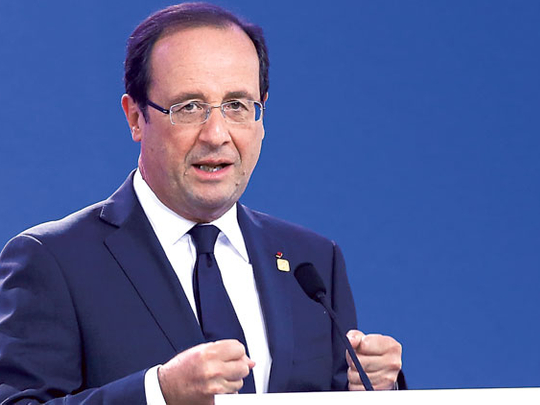
Paris: French President Francois Hollande admitted to delivering weapons to Syrian rebels in 2012 despite an embargo, according to a new book coming out in France this month.
“We began when we were certain they would end up in the right hands. For the lethal weapons it was our services who delivered them,” Hollande told author Xavier Panon in an interview in May last year.
The book by the journalist specialising in diplomatic and military issues, is entitled “In the corridors of French diplomacy”.
Panon wrote that France delivered canons, machine guns, rocket launchers and anti-tank missiles to the rebels fighting Bashar Al Assad’s regime in an uprising that has turned into all-out civil war and drawn in thousands of foreign fighters.
The Syrian Observatory for Human Rights says over 200,000 people have been killed in the fighting.
Panon said the weapons delivered in the second half of 2012 were aimed at aiding the rebellion as opposed to having a decisive effect on changing the course of the conflict.
At the time an European embargo on weapons was in place since June 2011. It was lifted in May 2013.
Until now, France has only admitted to delivering non-lethal weapons to the rebels such as bulletproof jackets or night-vision goggles.
The book traces a series of diplomatic and military moves by the French government both under Hollande and previous president Nicolas Sarkozy.
One of these was the planned air strikes against the Syrian regime for its use of chemical weapons in August 2013 which Washington backed down from after a diplomatic agreement.
The book names several planned targets of the strikes such as the “intelligence unit of the Syrian army which controls the chemical system.”
A political adviser told the author the planned strikes had two objectives, to change the “political order” in Syria and to destabilise Russia, which backs Damascus, to pressure Moscow into changing its approach to the conflict.












